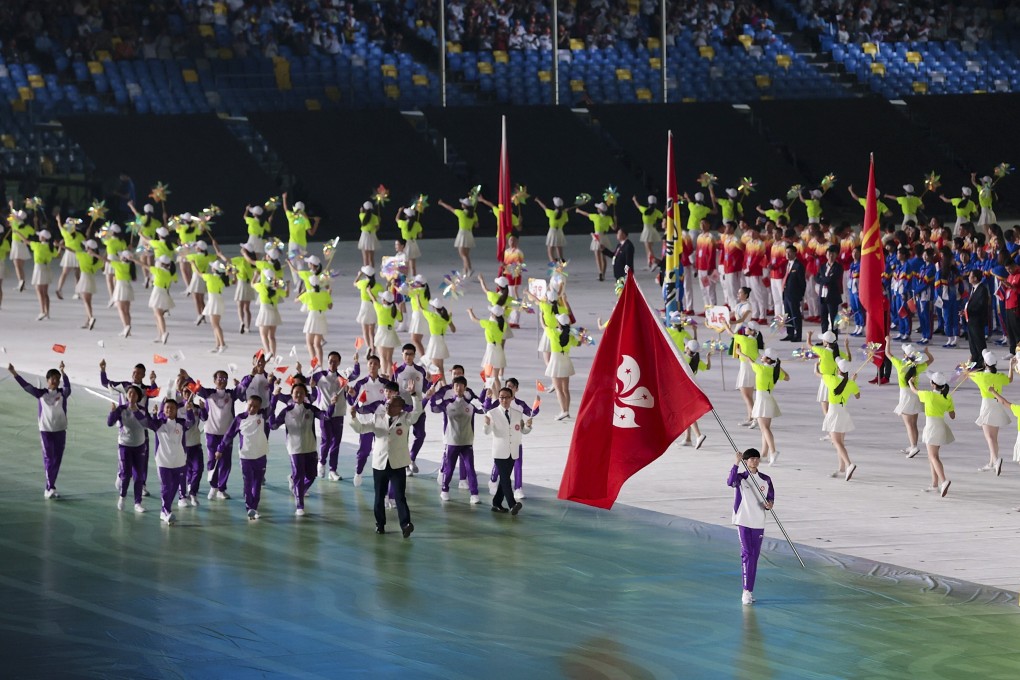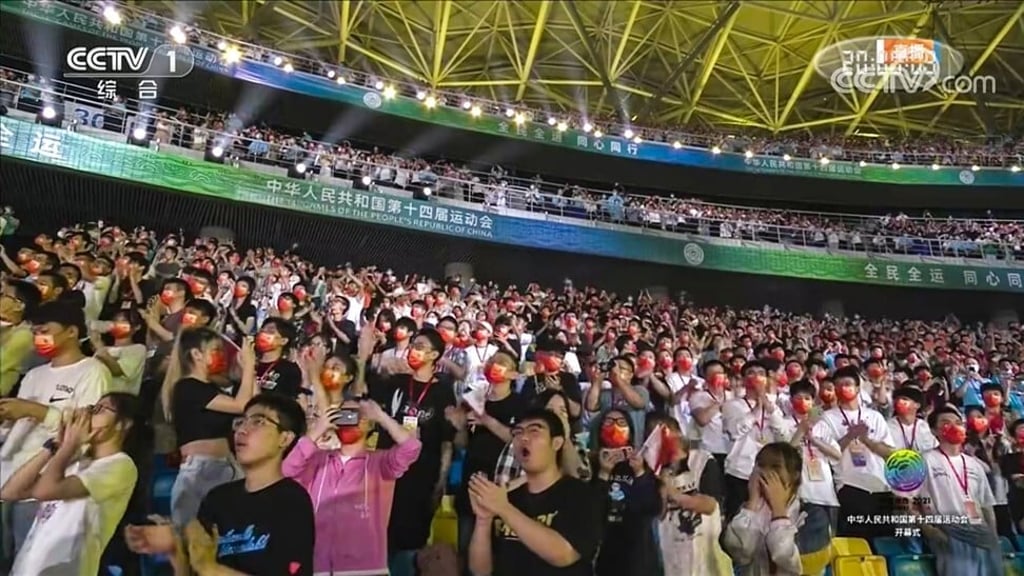Advertisement
President Xi Jinping declares China’s National Games open at ceremony in Xian
- High-profile test of China’s ability to stage a major sporting event during the pandemic, with the Beijing Winter Olympics to follow in 2022
- Thousands of spectators pack the stadium, with tight travel restrictions to minimise the coronavirus risk
Reading Time:5 minutes
Why you can trust SCMP
10

President Xi Jinping officially opened the National Games of China in the northwestern city of Xian, in a key test of the country’s Covid-19 defences in the countdown to next year’s Winter Olympics in Beijing.
Held in their present form since 1959, the four-yearly games feature almost all the same sporting events as the Summer Olympics. China’s domestic version, in which athletes are competing for their provinces in 35 sports, is expected to continue until September 27.
Stadium full
The 60,000-seat Xian Olympic Centre appeared to be full in a video shared by Chinese nationalistic tabloid Global Times 45 minutes before the start of the opening ceremony.
Advertisement
As the ceremony began with an announcement by Zhao Yide, the governor of Shaanxi province, members of the crowd – invited by the government, with no tickets offered for sale – used their phones to add light to the operatic music.
Advertisement
Maskless athletes and the packed venue led some Weibo users to compare the ceremony favourably with that for the Tokyo Olympics, which was notably muted with social distancing measures in place.
Tibet, Xinjiang, Hong Kong hailed
Advertisement
Select Voice
Choose your listening speed
Get through articles 2x faster
1.25x
250 WPM
Slow
Average
Fast
1.25x
